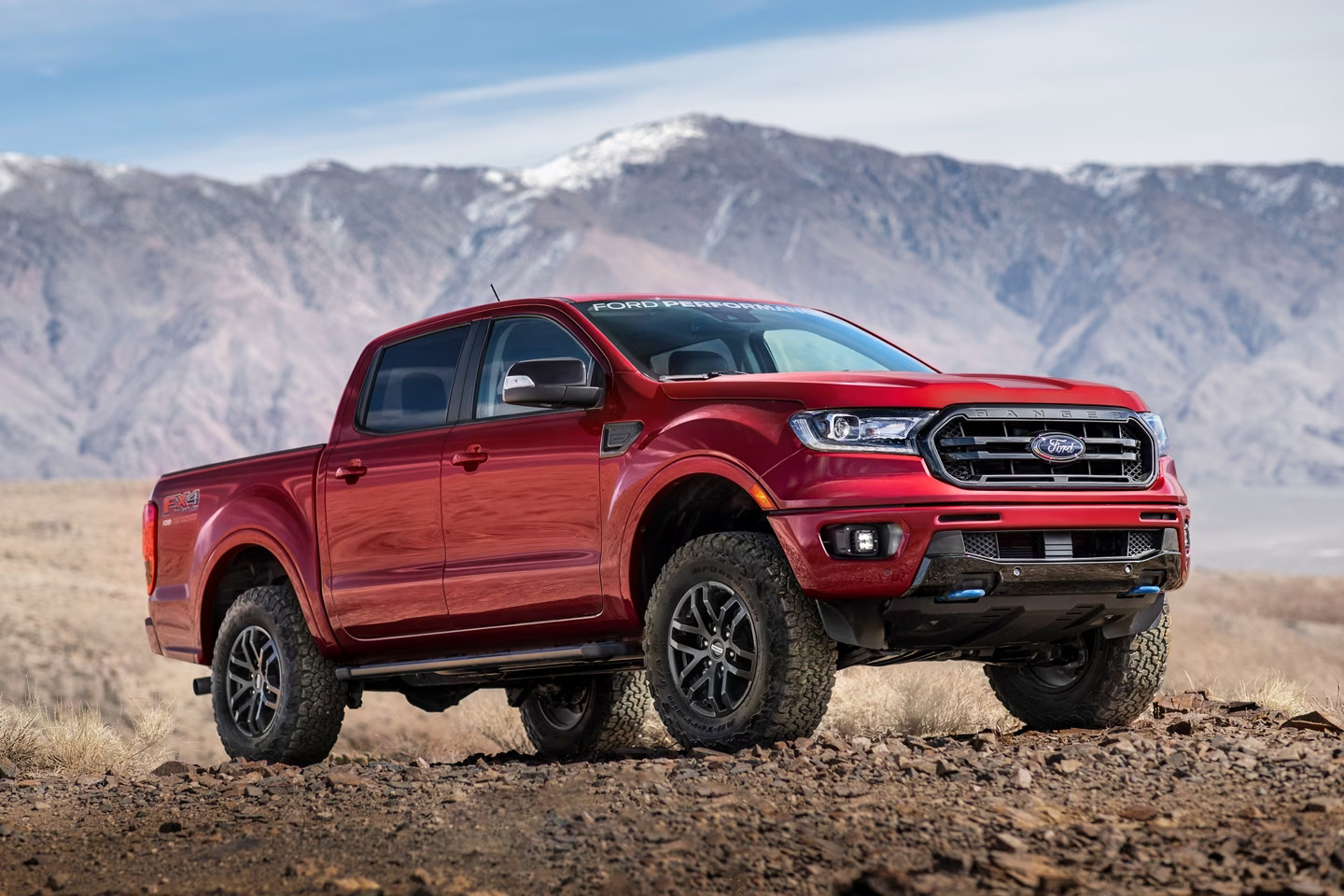Trucks are some of the most popular and versatile vehicles on the road today. Whether used for heavy-duty work, off-roading adventures, or everyday commuting, pickup trucks offer a combination of power, utility, and personality that few other vehicles can match.
But with the high price of new trucks—often crossing the $50,000 mark for well-equipped models—resale value becomes a crucial factor in a smart purchasing decision.
Some trucks manage to retain their value for years, making them a great investment. Others, despite flashy marketing or strong initial appeal, depreciate quickly and lose thousands in resale value within just a few years.
Understanding resale value isn’t just about brand loyalty or anecdotal experience. It reflects a combination of real-world factors: reliability, long-term performance, parts availability, brand reputation, demand in the used market, and cost of ownership.
Trucks that are known to last, offer consistent performance, and avoid excessive repairs tend to hold their value. These models are in high demand among used buyers, especially those looking to avoid the steep cost of new vehicles.
On the flip side, trucks that are over-complicated, less reliable, or tied to lower-demand brands often suffer on the resale market.
A flashy infotainment system won’t matter if the drivetrain is prone to costly failures, and even trucks that look good on paper can tank in value if their ownership experience proves frustrating.
This article highlights five trucks that consistently deliver excellent resale value, holding onto their worth even years after leaving the lot. These are the trucks that turn heads in both new and used markets, and buyers are often willing to pay top dollar for well-kept examples.
In contrast, we’ll also explore five trucks that experience rapid depreciation, often catching owners off guard with low trade-in offers or plummeting private-sale values.
Whether you’re buying new, trading in, or shopping used, knowing how these trucks perform on the resale front can help you make a smarter financial decision.
Trucks are meant to be durable, dependable machines, but their financial value over time is just as important as their performance on the road.
ALSO READ: 5 Cars With Smart Engineering and 5 That Were Designed Poorly
Trucks With the Best Resale Value
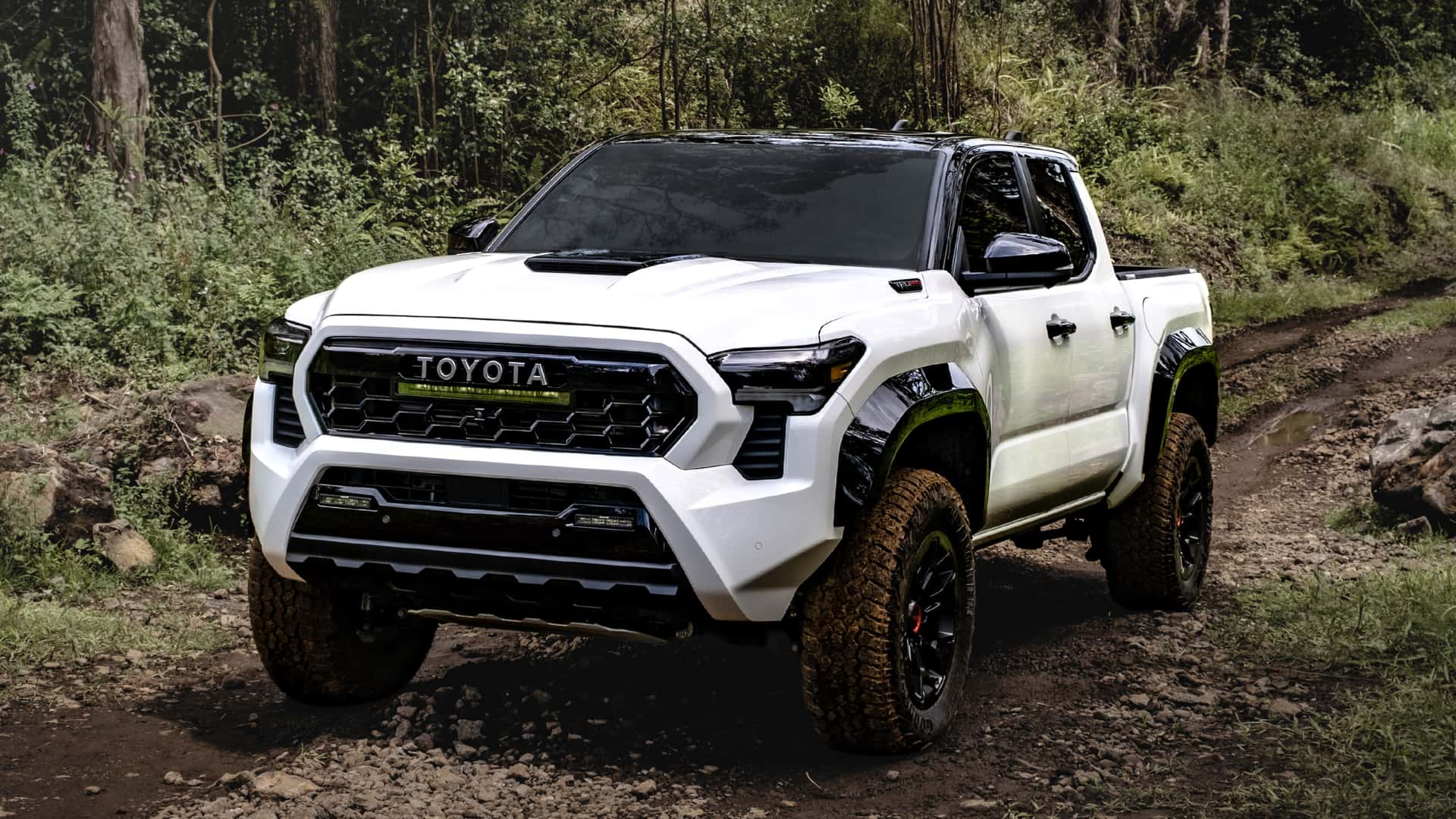
1. Toyota Tacoma
The Toyota Tacoma is arguably the king of resale value in the midsize truck segment, and for good reason. Its legendary reputation for reliability and longevity has made it a favorite among both off-road enthusiasts and everyday drivers.
Even Tacomas with high mileage often fetch strong prices on the used market, especially if they’re in decent condition and have been maintained well. This truck’s resale value is consistently among the best in the entire automotive industry, not just in the truck segment.
One reason the Tacoma holds its value so well is the simplicity and robustness of its engineering. Toyota doesn’t constantly overhaul the Tacoma with unnecessary tech or experimental features.
Instead, it focuses on incremental improvements that maintain the truck’s core appeal: rugged performance, durable drivetrain components, and ease of maintenance.
Buyers know what they’re getting, and used Tacomas don’t carry the stigma of unexpected repairs or system failures. This makes them a known quantity—and a highly sought-after one—on the used market.
In addition, the Tacoma has built a cult-like following, especially among off-road and overland communities. Limited supply combined with high demand keeps used prices inflated, especially for desirable trims like the TRD Pro or Off-Road editions.
Even base models with basic features often sell well above average market value. If you’re looking for a truck that will give you a strong return on investment years down the line, the Tacoma is hard to beat.
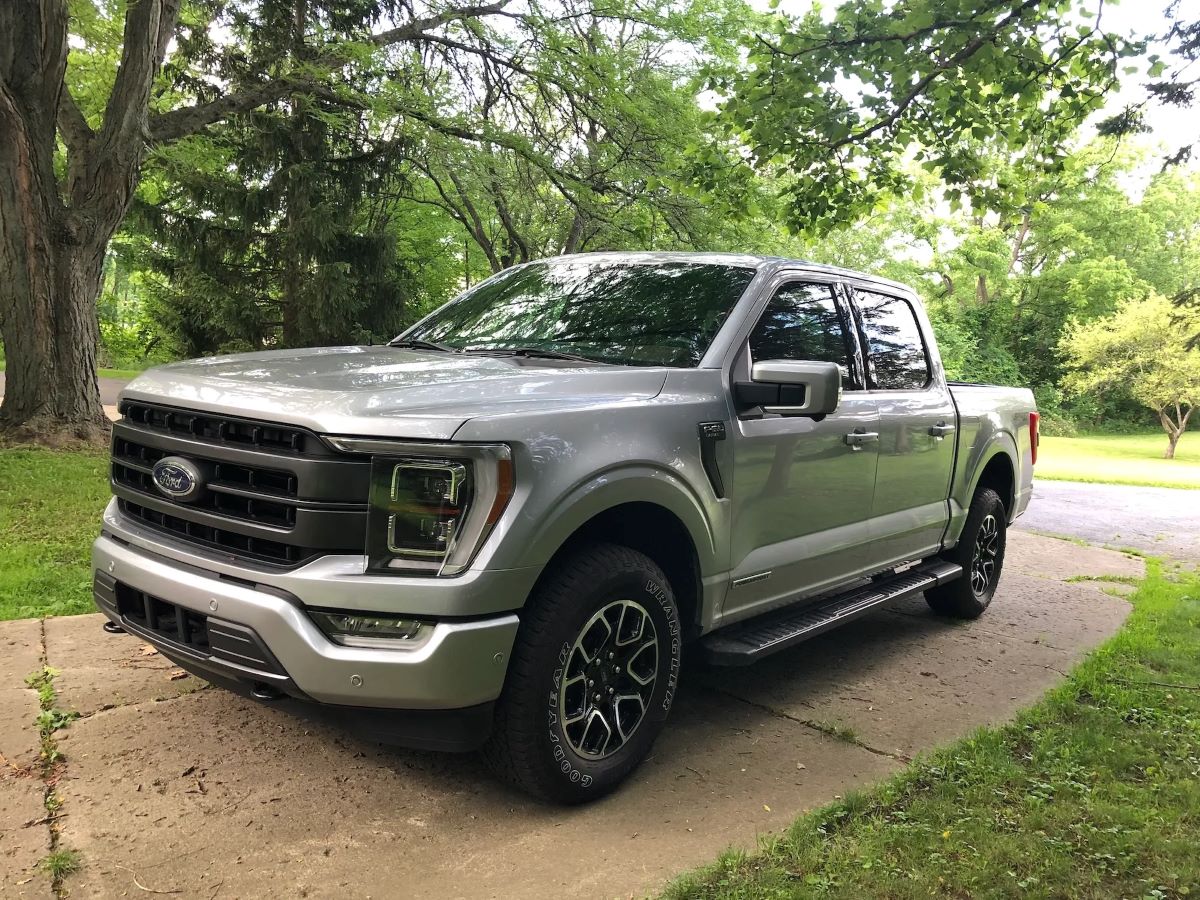
2. Ford F-150
The Ford F-150 isn’t just America’s best-selling truck—it’s also one of the strongest performers in terms of resale value. With a wide range of configurations, engines, and trims, the F-150 appeals to everyone from contractors and fleet operators to weekend warriors and commuters.
This broad appeal keeps demand high across both new and used markets, helping the truck hold its value year after year.
What makes the F-150 particularly appealing is its balance between innovation and dependability. Ford has been aggressive with its tech and powertrain offerings, but it hasn’t compromised reliability, especially in the widely respected 5.0L V8 and 2.7L EcoBoost engines.
These drivetrains have proven their durability over time, giving used buyers confidence in their purchase. In addition, the aluminum body introduced in 2015 reduces rust risk, a key concern for used-truck buyers in northern climates.
Trim levels also play a role. Well-equipped Lariat and King Ranch models tend to hold their value especially well, thanks to their premium interiors and added utility features.
Special editions and off-road-oriented versions like the Raptor also command top dollar. Even in a saturated market, a clean F-150 with service records can fetch an impressive price, making it a sound choice for resale-focused truck buyers.
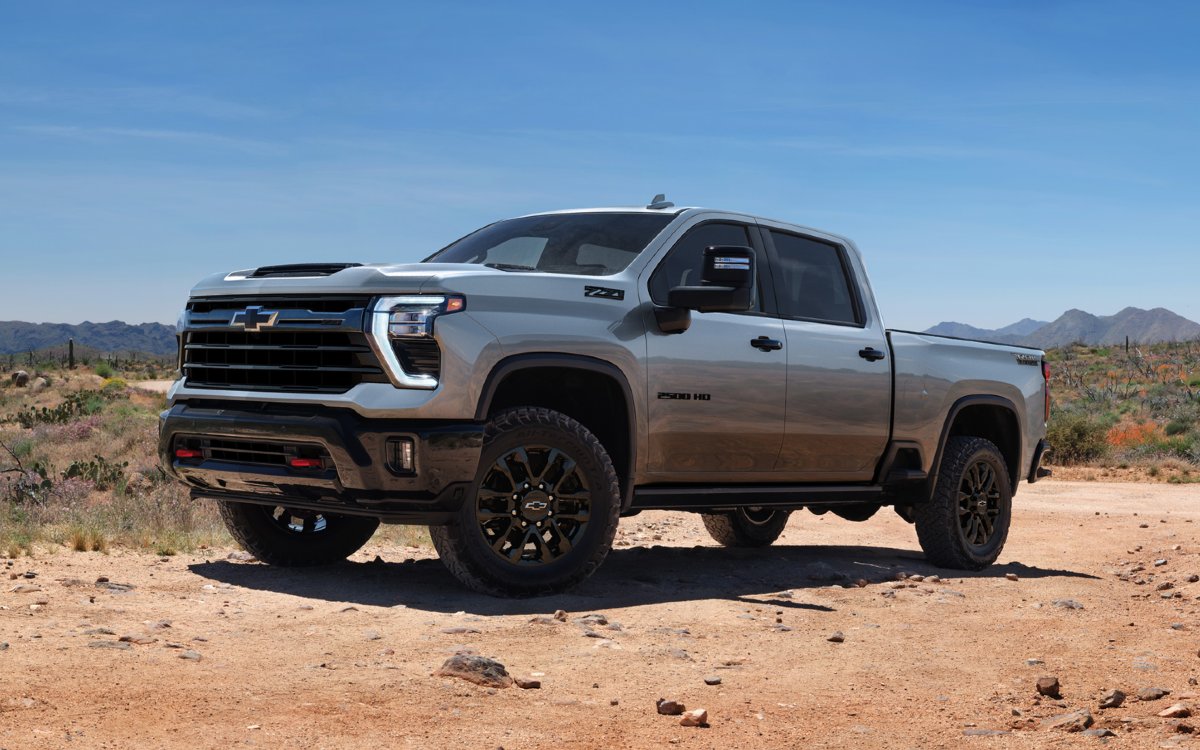
3. Chevrolet Silverado 2500HD
For those in need of heavy-duty performance, the Chevy Silverado 2500HD is one of the best bets in terms of retaining resale value. Its combination of robust towing capacity, straightforward engineering, and a no-nonsense work ethic makes it a favorite among commercial and private buyers alike.
When properly equipped with the Duramax diesel engine and Allison transmission, resale prices stay remarkably strong, even with higher mileage.
The Silverado 2500HD benefits from a strong reputation for durability. The truck is built to handle abuse, whether from daily towing, job site use, or agricultural demands.
Buyers in the market for a used heavy-duty truck are typically looking for capability over cosmetic perfection, and the 2500HD delivers exactly that. This high demand, especially for well-maintained diesel models, helps keep depreciation in check.
In addition to durability, the Silverado’s relatively low cost of ownership compared to competitors like the Ford Super Duty or Ram HD also plays a role.
Replacement parts are accessible, maintenance is straightforward, and the truck’s mechanical simplicity means fewer long-term headaches. These practical factors all contribute to strong resale values in the heavy-duty truck market.
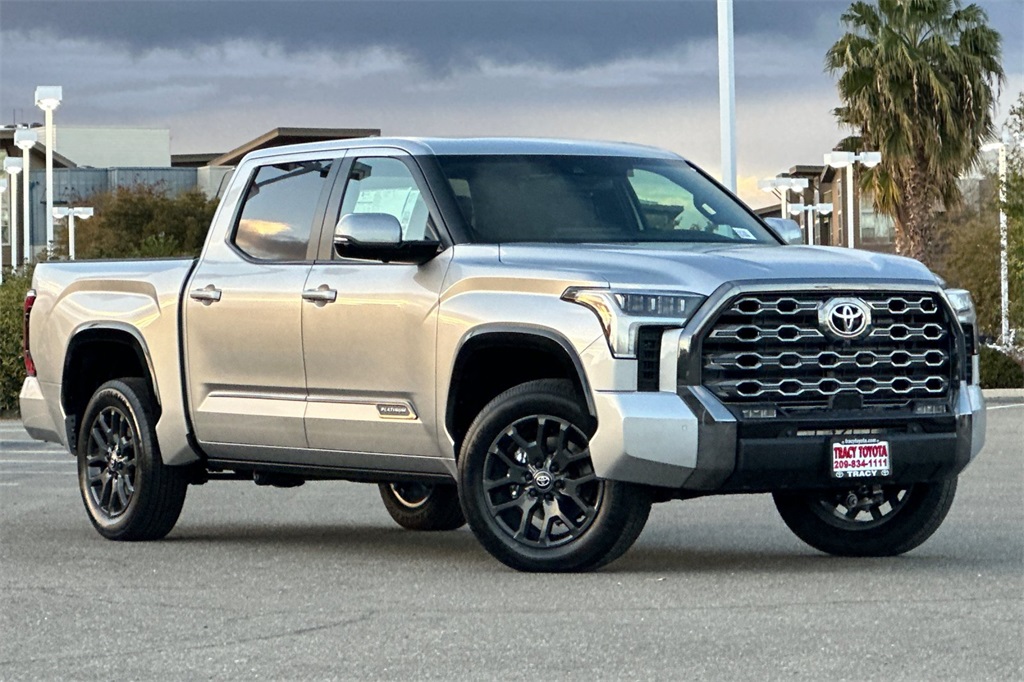
4. Toyota Tundra
The Toyota Tundra may not have the market share of its Big Three rivals, but it makes up for it with exceptional reliability and strong resale value. This full-size truck shares much of the Tacoma’s DNA: it’s simple, rugged, and built to last.
The Tundra consistently ranks among the top full-size pickups in terms of resale retention, particularly for models equipped with the proven 5.7L V8 engine.
The Tundra benefits from Toyota’s reputation for quality and consistency. Even older models from the early 2010s still command solid resale prices, and many exceed 200,000 miles with minimal issues.
While the Tundra may lag behind in terms of modern interior technology and towing capacity, its bulletproof reputation more than compensates in the eyes of used truck buyers. It’s a truck that people trust, and that trust translates directly into retained value.
Another reason for the Tundra’s strong resale is its appeal in rural and off-road communities, particularly in the western U.S., where reliability and toughness are often valued more than high-end luxury features.
Even with limited changes over the years, the Tundra remains in high demand due to its proven longevity and the simple confidence it inspires in owners and buyers alike.
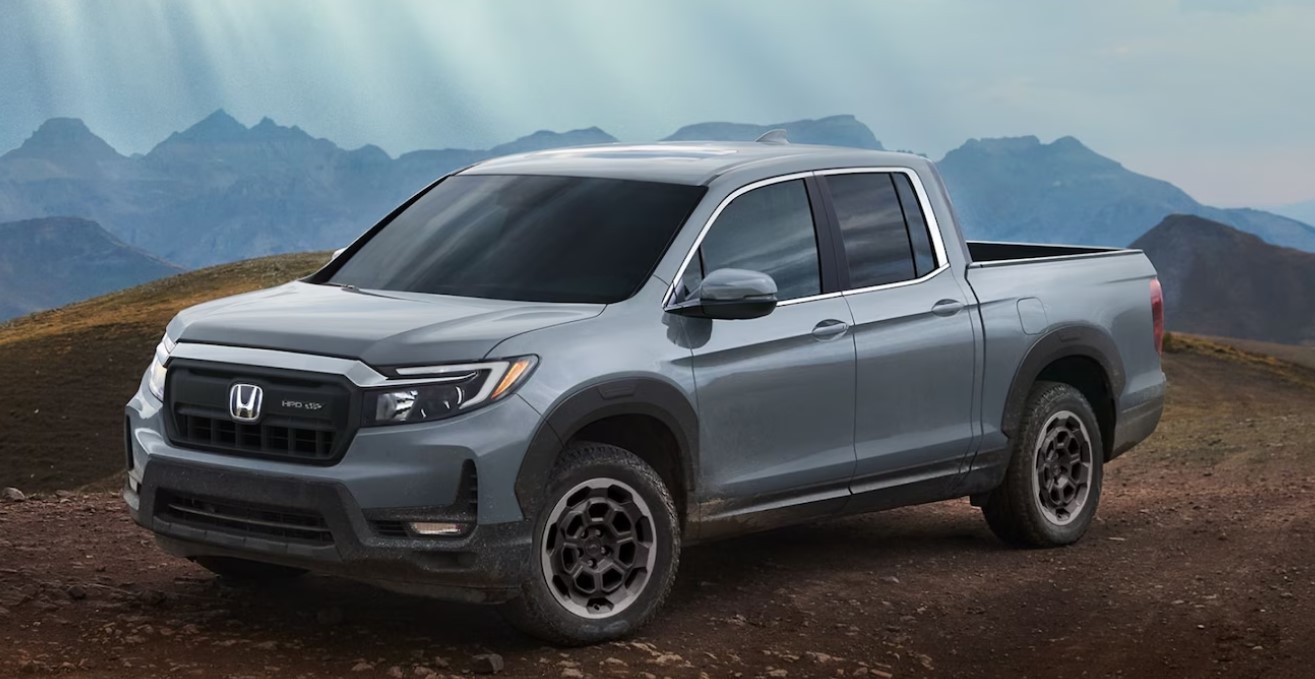
5. Honda Ridgeline
Though it’s often criticized for not being a “real truck,” the Honda Ridgeline holds its value better than most midsize competitors, not named Tacoma.
That’s because it delivers unmatched everyday usability, comfort, and quality. Built on a unibody platform with car-like driving dynamics, the Ridgeline appeals to a specific audience, and that audience stays loyal, keeping used demand high.
The Ridgeline’s resale value stems from Honda’s brand reliability and low cost of ownership. The vehicle rarely experiences major issues, and the ride quality appeals to commuters and small-business owners who don’t need body-on-frame toughness.
Features like the in-bed trunk and dual-action tailgate add utility that stands out in the used market, making older Ridgelines attractive to buyers who appreciate thoughtful design.
While it won’t compete with full-size trucks in towing or payload, the Ridgeline consistently earns high marks for safety, comfort, and resale value. Buyers in urban or suburban areas looking for a reliable, versatile truck that retains its value will find the Ridgeline to be a smart choice.
Trucks That Plummet in Price
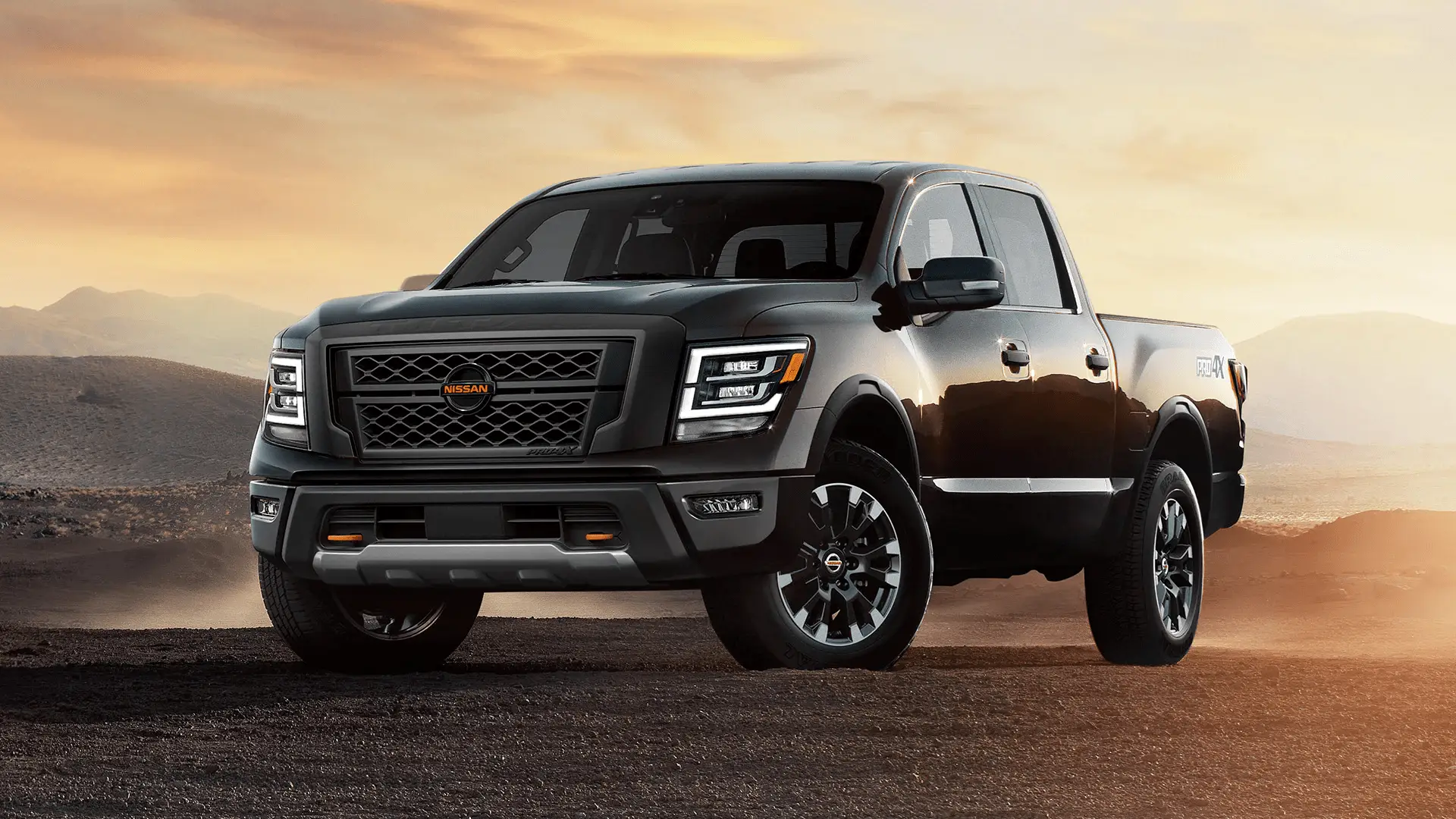
1. Nissan Titan
The Nissan Titan has long struggled to find its place in the full-size pickup segment, and its weak resale value is a reflection of that identity crisis.
Despite offering competitive features, a strong V8 engine, and solid towing numbers, the Titan has never quite earned the same trust or brand loyalty as its American or Japanese competitors.
Used buyers tend to pass over it in favor of more established options like the Ford F-150 or Toyota Tundra, which makes demand low in the secondary market and causes values to drop quickly.
Part of the Titan’s problem lies in perception. Buyers often view Nissan trucks as less rugged or less proven than the traditional Big Three options. While the Titan is mechanically sound in many respects, the lack of a diesel engine option, limited off-road variants, and less aftermarket support all work against it.
Many consumers also feel uncertain about the truck’s long-term future, especially with Nissan having announced at various points that it may scale back its presence in the full-size truck segment. This uncertainty translates into buyer hesitation and, softer resale values.
Compounding the issue is Nissan’s limited dealer network for truck service and low fleet sales compared to competitors. Trucks like the Silverado and Ram often have their resale value propped up by large-scale commercial and government use, which maintains demand for used models.
The Titan, by contrast, is rarely chosen by fleets, which limits its exposure and contributes to quicker depreciation. While it may be a decent value on the used market, the Titan is not a good choice for those who plan to trade in or resell within a few years of ownership.
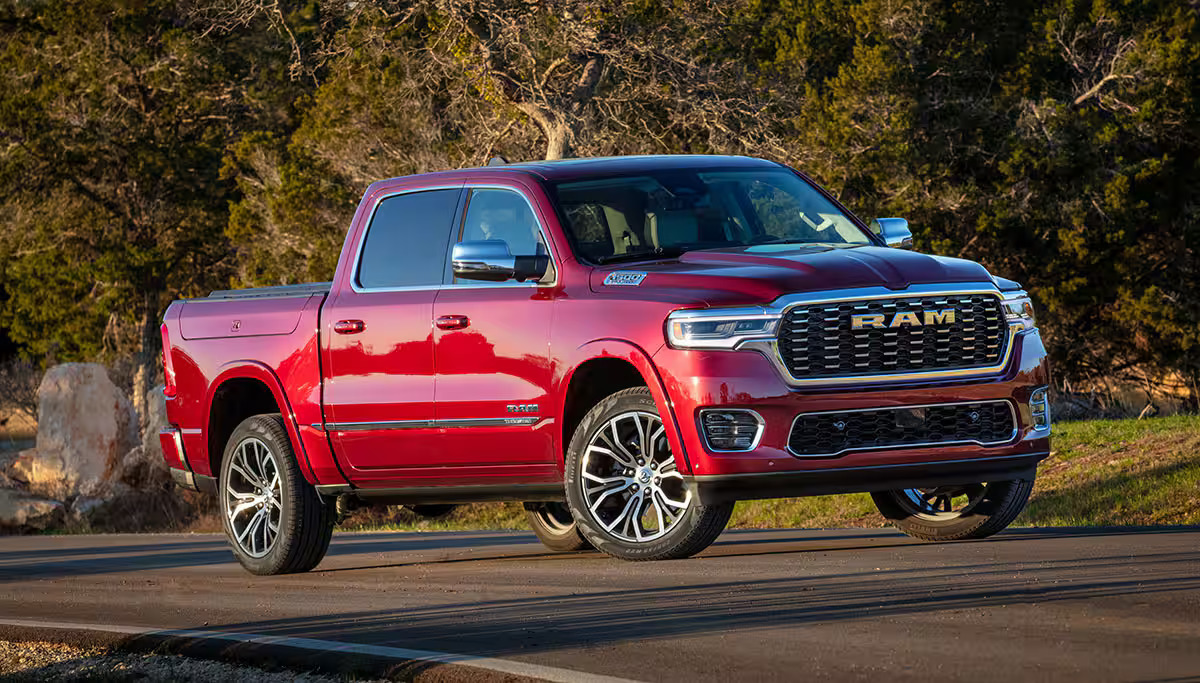
2. Ram 1500
The newer Ram 1500 models—especially post-2019 redesign—have seen some improvement in both quality and perception, but older generations (2009–2018) still suffer from weak resale value.
These trucks tend to depreciate more quickly than comparable models from Ford and Chevy, mainly due to a history of quality concerns, reliability complaints, and inconsistent build standards.
Buyers often associate older Rams with issues like premature rust, electrical gremlins, or transmission troubles, which makes used examples less appealing and drives down trade-in and resale prices.
A major factor in the Ram 1500’s depreciation has been its reputation for uneven reliability. While the HEMI V8 engines are generally solid, other components like the air suspension, 8-speed transmission, and interior electronics have had hit-or-miss performance depending on the production year.
In addition, cost-cutting measures in certain trims have led to subpar material quality, particularly in lower-end models, which results in quicker wear and tear. These issues accumulate over time and become red flags for buyers looking for dependable used trucks, pushing prices downward.
Another issue is the steep competition in the used truck market. Buyers looking for affordable full-size pickups often gravitate toward the Silverado or F-150, both of which offer better resale performance and a more extensive service and parts network.
The older Ram 1500s, though often comfortable and stylish, are viewed as riskier choices, particularly if they have higher mileage or limited maintenance history. Unless you find a low-mileage, well-maintained version, older Rams are a tough sell on the private market and generally yield lower resale offers than their rivals.
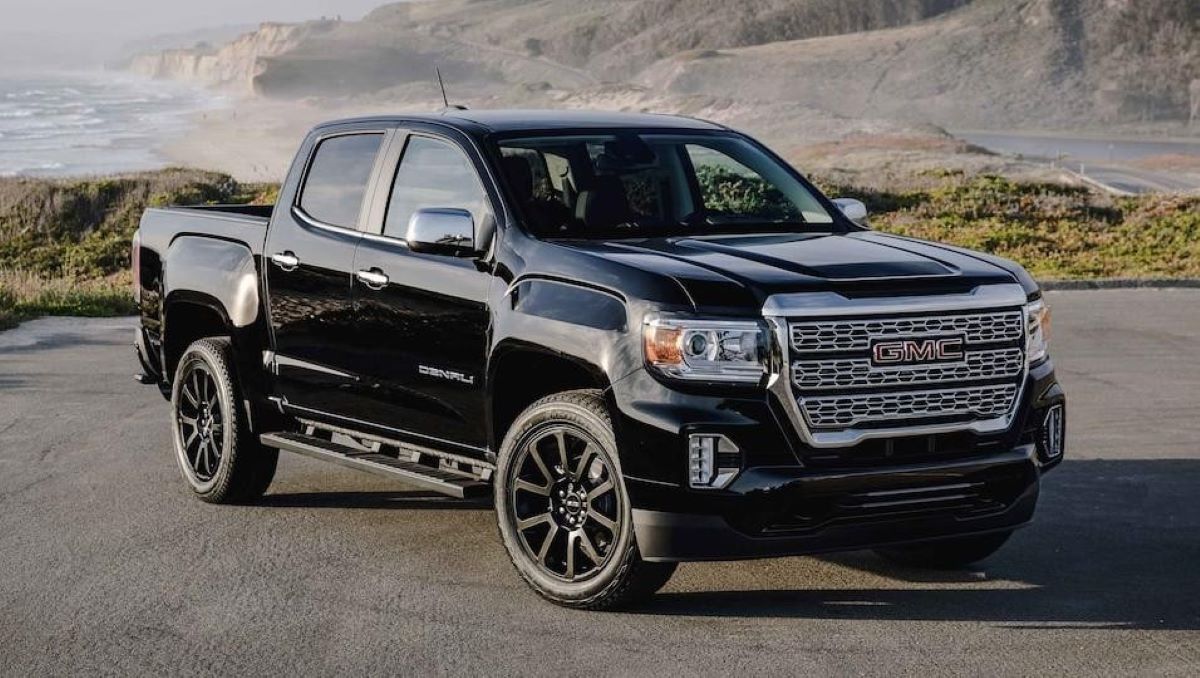
3. GMC Canyon
The GMC Canyon, the more upscale twin of the Chevrolet Colorado, might seem like a smart buy at first glance, especially for those looking for a midsize truck with a slightly more premium finish. However, its resale value tells a different story. Despite being a competent and comfortable truck, the Canyon struggles to hold its value over time.
Buyers tend to prefer either the more affordable Chevy Colorado or the longer-lasting Toyota Tacoma in the used market, which leaves the Canyon sitting longer on dealership lots and eventually dropping in price to attract buyers.
One reason the Canyon depreciates faster than expected is that it doesn’t offer enough differentiation from the Colorado to justify its higher price tag, either new or used. Many of the same drivetrains, platforms, and features are shared between the two, yet the Canyon comes at a premium because of GMC’s “professional grade” branding.
In the used market, however, most buyers are simply looking for a reliable truck at a good price, and the Canyon’s slightly upscale interior or exterior tweaks aren’t enough to justify a significant price difference, especially when resale value is at stake.
Additionally, some of the Canyon’s engine options—like the base four-cylinder or the diesel variant—haven’t held up well in terms of reliability perception or cost of maintenance. This causes hesitancy among second-hand buyers, especially for diesel versions that command higher service costs without the expected longevity or towing benefits of a full-size diesel truck.
Combined with a lack of robust aftermarket support and fewer off-road or enthusiast trims, the Canyon quickly becomes overshadowed in resale circles, leading to faster-than-average depreciation.
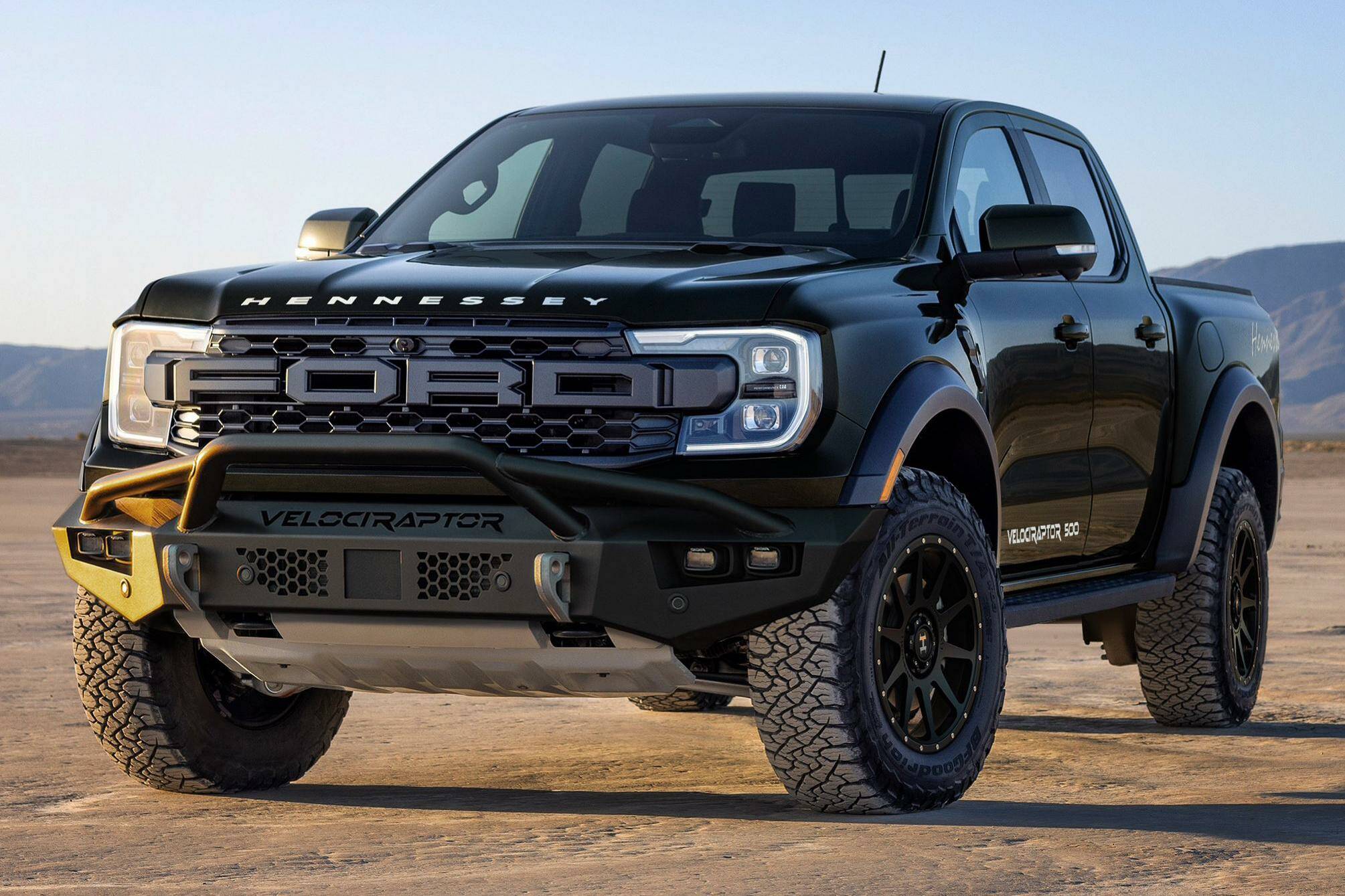
4. Ford Ranger (Recent Reboot Models)
When Ford brought the Ranger back to the U.S. market in 2019, it was met with considerable excitement. Unfortunately, the Ranger’s resale value hasn’t lived up to expectations.
Despite Ford’s strong brand reputation and success with the F-150, the midsize Ranger struggles to retain value compared to its Japanese counterparts, particularly the Toyota Tacoma.
Buyers looking for long-term reliability and low ownership costs tend to steer away from the Ranger, causing depreciation to occur faster than Ford likely anticipated.
The issue lies partly in the truck’s initial reception. While it offers solid towing numbers and decent performance from its turbocharged 2.3L EcoBoost engine, the Ranger has been criticized for a stiff ride, an uninspired interior, and a lack of refinement.
These criticisms have stuck with the truck, and in the used market, buyers often perceive it as a less polished, less proven alternative to class leaders. It also lacks the off-road credibility and community support that helps trucks like the Tacoma and Colorado ZR2 retain value better.
Furthermore, the Ranger doesn’t offer a wide array of trims or engine choices, which limits its appeal in both the new and used markets. This lack of diversity, combined with Ford’s focus on pushing high-volume sales, results in market saturation that pushes resale prices downward.
A surplus of lease returns or former fleet vehicles only accelerates depreciation. While the Ranger may eventually establish itself more firmly in the segment, for now, its resale value remains underwhelming.
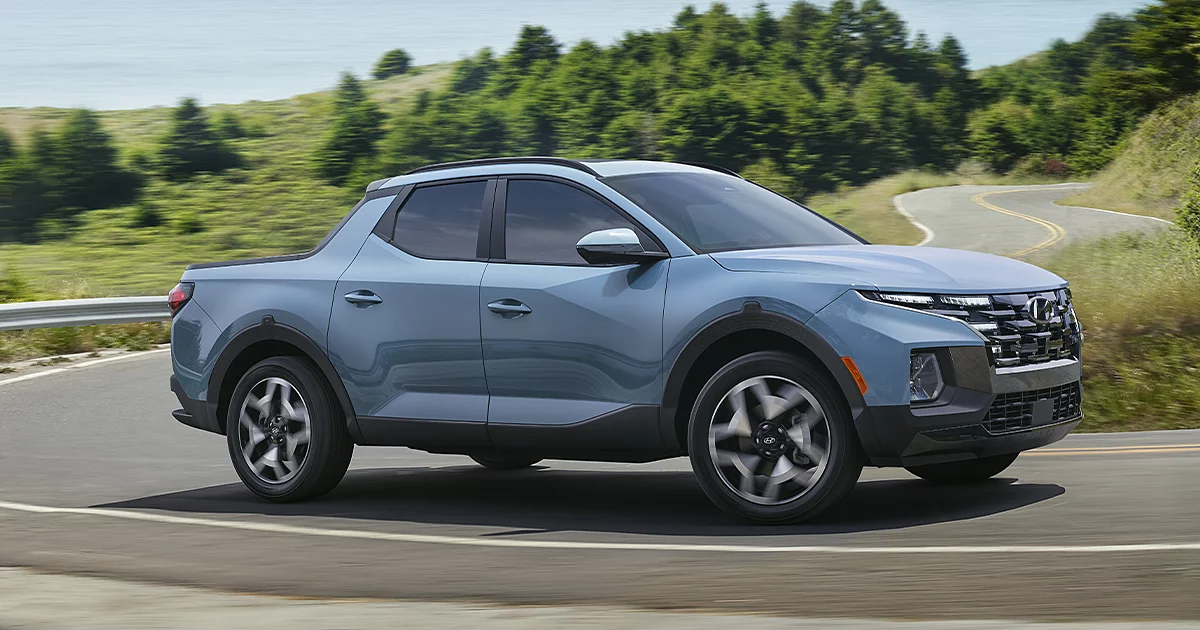
5. Hyundai Santa Cruz
The Hyundai Santa Cruz is a unique entry into the truck market, and while it has drawn attention for its crossover-based design and urban-friendly size, it suffers heavily when it comes to resale value. Being a unibody pickup built on the same platform as the Tucson SUV, the Santa Cruz isn’t perceived as a “real truck” by traditional standards.
This alone limits its appeal in the resale market, where buyers tend to prioritize utility, ruggedness, and towing capacity—all areas where the Santa Cruz lags behind.
Santa Cruz’s depreciation is further accelerated by its niche appeal. While it does have clever features like a lockable bed trunk and a smooth ride quality, it caters to a very specific demographic.
Unfortunately, that demographic doesn’t typically look to the used market for such vehicles, and many traditional truck buyers view it as more of a lifestyle vehicle than a serious utility option. The result is that used Santa Cruz models don’t attract the kind of demand needed to keep prices stable.
Dealers are often forced to discount them heavily to move inventory, and trade-in offers can be surprisingly low, even for relatively new models.
Another challenge is the vehicle’s limited aftermarket support and questionable long-term durability in truck-like conditions. Hyundai’s warranty is excellent on paper, but it doesn’t prevent depreciation once that coverage period ends.
Buyers considering a Santa Cruz for occasional hauling or light off-road use often end up choosing a small SUV or a midsize truck instead—both of which hold value better.
Despite its creativity and innovation, the Santa Cruz has yet to earn the confidence of used-truck shoppers, which makes it one of the poorest resale performers in its category.
ALSO READ: 5 Cars That Offer More Than They Cost and 5 That Are Overpriced
Whether you’re buying new or used, resale value plays a massive role in the long-term cost of ownership. Trucks that retain their value well, like the Toyota Tacoma, Ford F-150, and Silverado 2500HD, not only give owners more confidence in their purchase but also offer better trade-in options, higher private sale returns, and more financial security.
These trucks maintain a strong presence in both new and used markets because they deliver what buyers expect: reliability, durability, and consistent performance over time.
On the other hand, trucks like the Nissan Titan, older Ram 1500s, and Hyundai Santa Cruz remind us that not all pickups are created equal when it comes to value retention.
While these trucks might offer certain advantages, like lower new prices or more features, they often lack the long-term dependability or brand equity that supports strong resale numbers. For budget-conscious buyers, they may seem like a great deal up front, but depreciation can quickly erase those savings.
When making your next truck purchase, consider not just the specs and styling but also the expected resale trajectory. A well-chosen truck will not only serve your current needs but also hold its value when it’s time to sell or trade.
In a market where trucks often double as work tools, daily drivers, and even status symbols, smart resale value is more than just a bonus—it’s a must-have asset.

